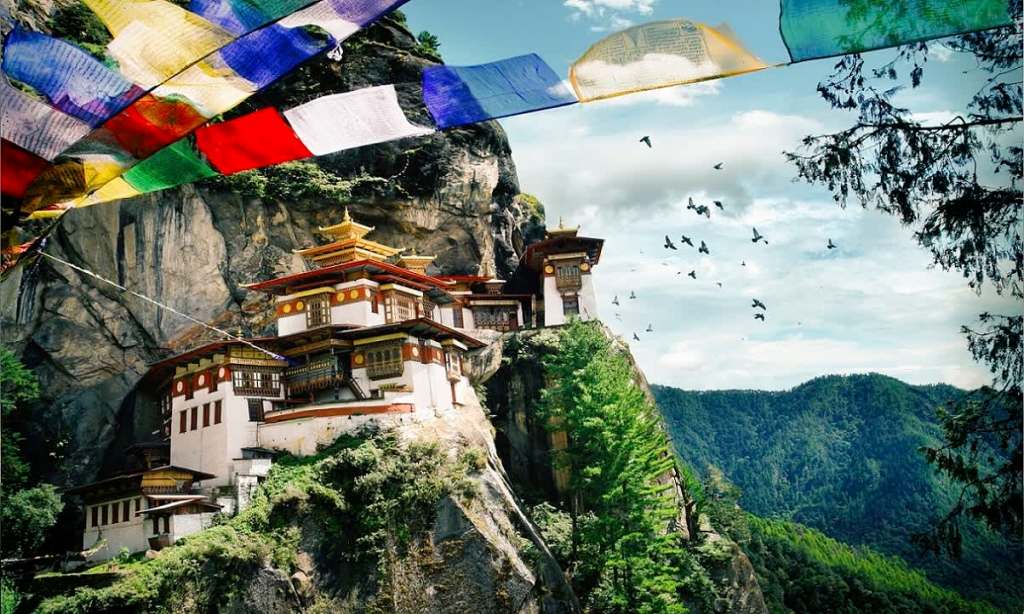Bhutan doesn’t often come up in conversation. It is however a fascinating place and an excellent one to know about for pub trivia (‘Which countries feature dragons on their flag?’ Answer: ‘Wales, Malta, and Bhutan’).
With a population of just 763,000 – about twice the size of Canberra – the Dragon Kingdom is tucked between India and China, high in the Himalayas, and has relatively few doctors or nurses.
Despite this, Bhutan has managed to vaccinate almost its entire population within a week after an influx of doses donated by other countries.
More than 454,000 shots were given in the last seven days to cover more than 85% of the eligible adult population, giving its population yet another reason to smile in a country that strives to achieve higher ‘gross national happiness’ rather than GDP.
Here’s how they did it.
Bhutan’s vaccination drive
Like many small countries, Bhutan has had to rely on the kindness of other nations for its vaccine supply. In late March and early April of this year, India donated 550,000 AstraZeneca shots to Bhutan and had planned to follow these up in the following months.
However, as we know, India was subsequently overwhelmed by a massive outbreak of COVID-19 and the variant that soon became known as Delta.
This meant that Bhutan was stuck without further doses of the vaccine to follow up with its citizens within the recommended 12-week window for a second dose of AstraZeneca.
Faced with this growing time gap between first and second doses, Bhutan launched an appeal for donations.
The United States responded with half a million doses of the Moderna vaccine, while Denmark came through with a quarter of a million AstraZeneca shots.
Croatia, Bulgaria, China, and a host of others have also sent a total of more than 440,000 doses of AstraZeneca, Pfizer, and Sinopharm vaccines which are expected to arrive soon.
The Bhutan government purchased 200,000 Pfizer doses but they are not expected to be delivered until later in the year.
This of course will mean that many Bhutanese will be mixing their vaccines but that’s not a problem according to experts.
How they did it
Even before the pandemic, Bhutan had been warning of a shortage of doctors.
The World Health Organization recommends that, for every 1,000 people, a country should have one doctor. Bhutan had just 337, about half as many as needed.
Instead of doctors, the country relied on volunteers, known as ‘desuups’, to deliver the vaccine. They trekked through the countries difficult terrain to deliver vaccine equipment to remote areas while encouraging people to social distance and wear masks.
Bhutan, as a highly Buddhist nation, chose the first person to receive the vaccine through consultation with star charts. The Prime Minister followed, assuring everyone that the rollout was in alignment with the stars and thus creating a sense of belief and confidence in the vaccine.
The Atlantic has called Bhutan’s rollout “the unlikeliest pandemic success story” and has said that its strategy hinged on engaged leadership, preparedness, swift action, playing to its strengths, and providing adequate support for those who had to isolate.
Bhutan closed its borders early during the pandemic and has a long-standing policy of limiting tourism numbers to the country so as not to spoil its natural beauty.
As such, they’ve only had 2,489 COVID-19 cases and two deaths since the start of the pandemic and even briefly surpassed Israel for vaccination speed. This stands in stark contrast to other South Asian nations that have considerably higher cases and have also been affected by the suspension of vaccine supplies from India.
UNICEF’s Bhutan representative, Will Parks, has said that the rollout is a “great success story for Bhutan”.
“We really need a world in which the countries which have surplus vaccines really do donate to those countries that haven’t received [shots] so far,” he said from the capital, Thimpu.
“And if there’s anything that I hope the world that can learn, is that a country like Bhutan with very few doctors, very few nurses but a really committed king and leadership in the government mobilising society – it’s not impossible to vaccinate the whole country.”
Read more stories from The Latch and subscribe to our email newsletter.







